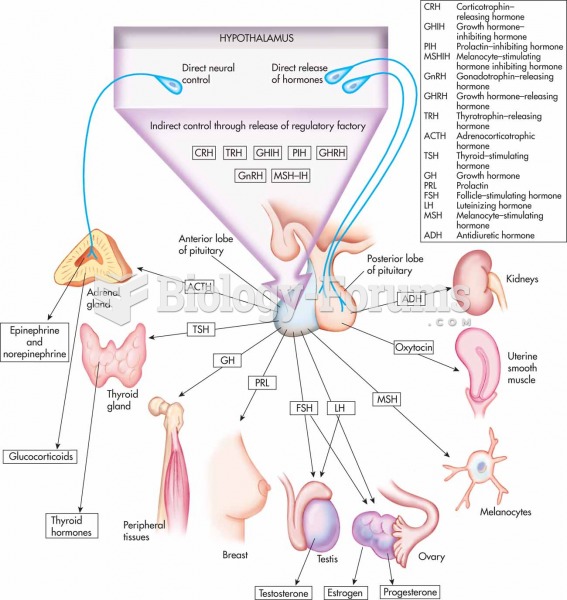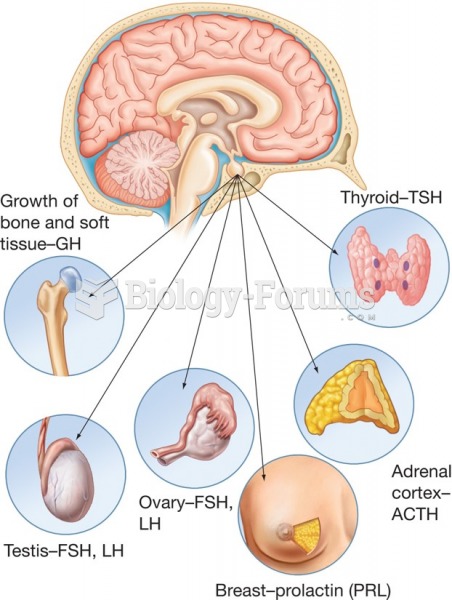|
|
|
Though the United States has largely rejected the metric system, it is used for currency, as in 100 pennies = 1 dollar. Previously, the British currency system was used, with measurements such as 12 pence to the shilling, and 20 shillings to the pound.
The use of salicylates dates back 2,500 years to Hippocrates’s recommendation of willow bark (from which a salicylate is derived) as an aid to the pains of childbirth. However, overdosage of salicylates can harm body fluids, electrolytes, the CNS, the GI tract, the ears, the lungs, the blood, the liver, and the kidneys and cause coma or death.
Nearly 31 million adults in America have a total cholesterol level that is more than 240 mg per dL.
After 5 years of being diagnosed with rheumatoid arthritis, one every three patients will no longer be able to work.
The Romans did not use numerals to indicate fractions but instead used words to indicate parts of a whole.







